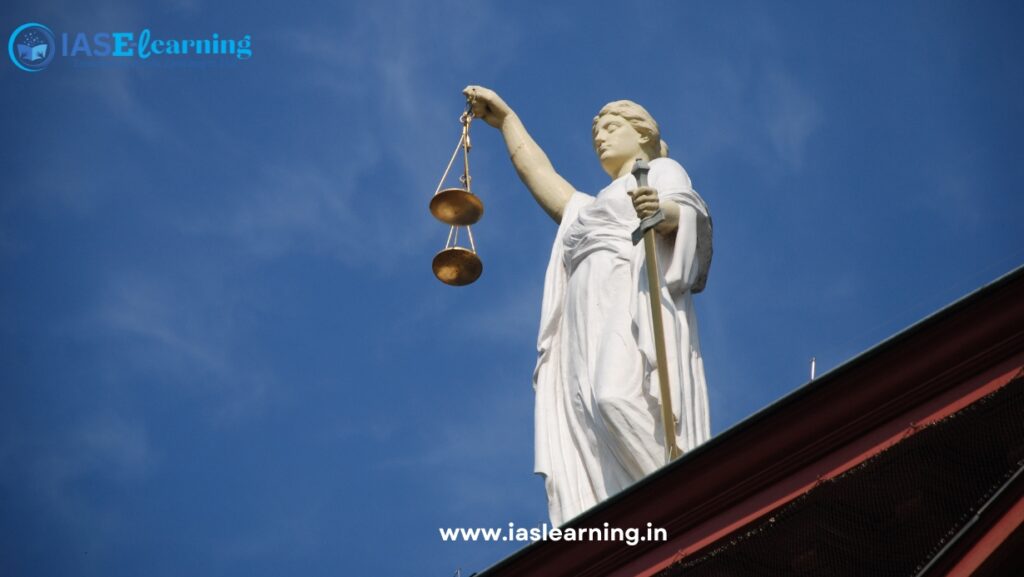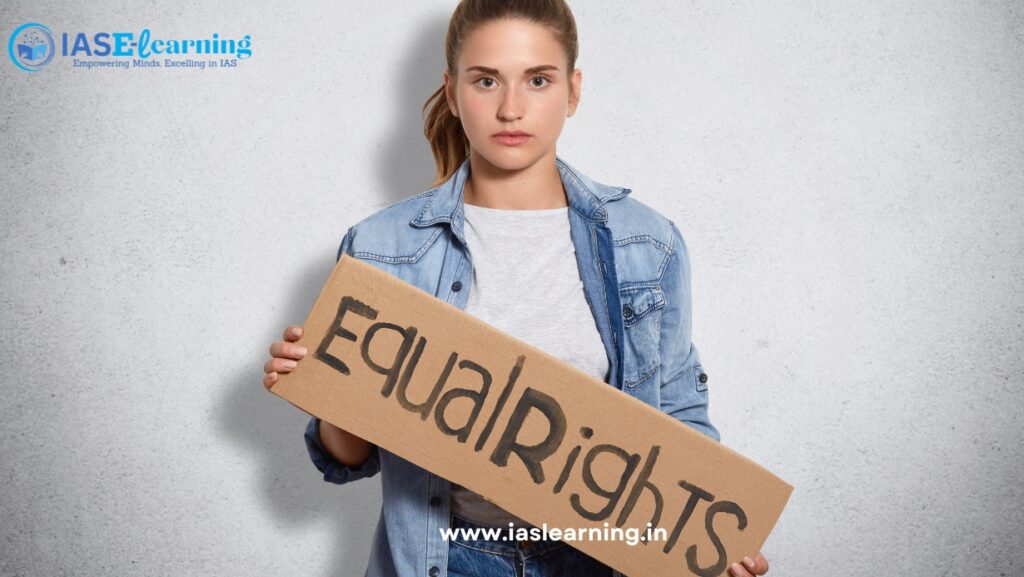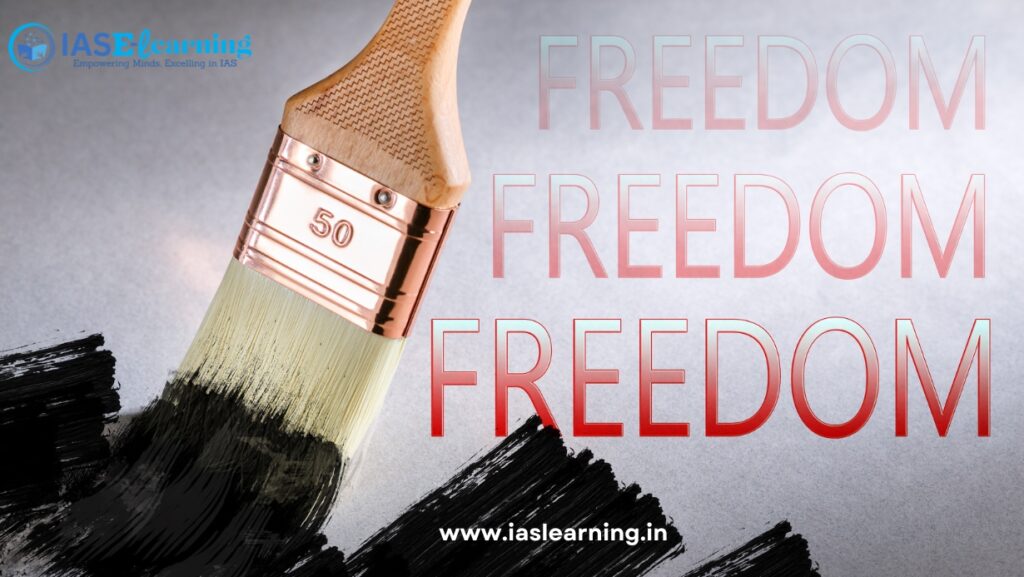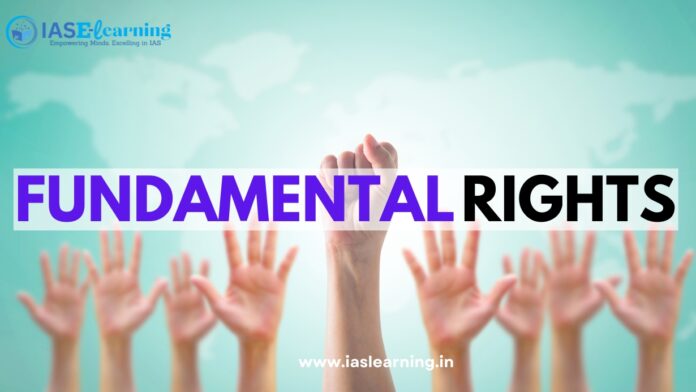Introduction:Fundamental Rights- A Legal Insight for Empowered Living

Articles 12-35 in Part III of the Indian Constitution, influenced by the U.S. Bill of Rights, serve as the fundamental framework for all-encompassing development—material, intellectual, moral, and spiritual. Often regarded as the Magna Carta of India, these rights are justiciable, guaranteed to all with reasonable restrictions. They embody the ideals of political democracy, placing limitations on executive tyranny and legislative arbitrariness. The harmony between Fundamental Rights (FR) and Directive Principles of State Policy (DPSP) is deemed an integral part of the constitution’s basic structure.”
Fundamental Rights in the Indian Constitution are outlined as follows:
Right to Equality (Article 14-18)
Right to Freedom (Article 19-22)
Right against Exploitation (Article 23-24)
Right to Freedom of Religion (Article 25-28)
Cultural and Educational Rights (Articles 29-30)
Right to Property (Article 31), now Article 300A post the 44th Amendment Act, 1978 (Legal Right)
Right to Constitutional Remedies (Article 32)
Presently, there are only six Fundamental Rights as the right to property has been moved.”
Features of Fundamental Rights in the Indian Constitution include:
Citizenship Restriction: Fundamental Rights- A Legal Insight for Empowered Living!

Some rights are exclusive to Indian citizens (Article 15, Article 16, Article 19, Article 29, and Article 30).
Qualified Nature: Fundamental Rights- A Legal Insight for Empowered Living!
Not absolute but qualified, subject to reasonable restrictions.
Protection Against State Action:
All rights safeguard against arbitrary state actions.
Negative and Positive Rights:
Some rights are negative in character, emphasizing freedom from interference, while others are positive, ensuring affirmative entitlements.
Amendability: Fundamental Rights- A Legal Insight for Empowered Living!
Not sacrosanct or permanent; can be amended by Parliament.
Suspension During Emergencies:
Except for Article 20 and Article 21, rights get suspended during a National Emergency (Article 352).
Article 19 can be suspended only during a state of war or external aggression (External Emergency) and not during armed rebellion (Internal Emergency).
Limitations by Specific Articles:
Scope limited by Art. 31A (saving of laws providing for acquisition of estates), Art. 31B (validation of certain acts and regulations in the 9th schedule), and Art. 31C (saving of laws giving effect to certain directive principles).
Restrictions During Martial Law:
Can be restricted while martial law is in force (Art. 34).
Self-Executory and Parliamentary Authority:
Most are self-executory, while for some, laws can only be made by Parliament and not by state legislatures.”
Right to Equality (Art. 14-18):
Equality before Law (Article 14):
Ensures absence of special privileges and equal subjection of all individuals to the ordinary law.
Prohibition of Discrimination (Article 15):
Prohibits discrimination based on religion, race, caste, sex, or place of birth.
Equality of Opportunity in Employment (Article 16):
Guarantees equal opportunities in matters of public employment.
Abolition of Untouchability (Article 17):
Forbids untouchability, reinforced by the Untouchability (Offences) Act, 1955.
Abolition of Titles (Article 18):
Restricts the state from conferring titles, except military or academic distinctions, and prevents citizens from accepting titles from foreign states.
Right to Freedom (Art. 19-22): Fundamental Rights- A Legal Insight for Empowered Living!

Six Freedoms (Article 19):
Safeguards freedom of speech, assembly, association, movement, residence, and profession.
Protection in Conviction Cases (Article 20):
Provides protection in cases of conviction for offences.
Protection of Life and Personal Liberty (Article 21):
Ensures protection of life and personal liberty, including the right to elementary education (Article 21A).
Protection Against Arrest and Detention (Article 22):
Safeguards against arrest and detention in certain cases.
Right Against Exploitation (Art. 23-24): Fundamental Rights- A Legal Insight for Empowered Living!
Prohibition of Forced Labor (Article 23):
Bars traffic in human beings and forced labor.
Prohibition of Child Labor (Article 24):
Forbids the employment of children in factories and similar establishments.
Right to Freedom of Religion (Art. 25-28): Fundamental Rights- A Legal Insight for Empowered Living!
Freedom of Conscience (Article 25):
Guarantees freedom of conscience and the right to profess, practice, and propagate religion.
Freedom to Manage Religious Affairs (Article 26):
Preserves the freedom to manage religious affairs.
Freedom from Payment of Taxes for Religion (Article 27):
Exempts citizens from paying taxes for the promotion of any religion.
Freedom from Religious Instruction (Article 28):
Protects individuals from mandatory religious instruction or worship in certain educational institutions.
Cultural and Educational Rights (Art. 29-30):
Protection of Minority Rights (Article 29):
Safeguards the language, script, and culture of minorities.
Minority Right to Establish Educational Institutions (Article 30):
Empowers minorities to establish and administer educational institutions.
Right to Constitutional Remedies (Article 32): Fundamental Rights- A Legal Insight for Empowered Living!
Provides the right to move the Supreme Court for the enforcement of fundamental rights, considered a part of the basic structure of the constitution.
Additional Constitutional Provisions: Fundamental Rights- A Legal Insight for Empowered Living!
Article 12:
Defines “State” to include government bodies, local authorities, and other authorities, even private bodies acting as instruments of the state.
Article 13:
Declares laws inconsistent with fundamental rights as void; includes permanent laws, temporary laws, and statutory instruments.
Article 14:
Ensures both equality before the law and equal protection of the laws.
Article 15:
Prohibits discrimination based on religion, race, caste, sex, or place of birth; exceptions allow special provisions for certain groups.
Article 16:
Guarantees equality of opportunity in matters of employment; exceptions include residence conditions and reservations for backward classes.
Article 17:
Abolishes untouchability; applies against private individuals, and the state is obligated to prevent violations.
Article 18:
Prohibits the state from conferring titles, except military or academic distinctions, and restricts citizens from accepting titles from foreign states.
RIGHT TO FREEDOM (ARTICLE 19): Fundamental Rights- A Legal Insight for Empowered Living!

Article 19 guarantees six rights to all citizens. Originally, it included seven rights, but the right to property was deleted by the 44th Amendment Act in 1978 and replaced by Article 300A. The six rights protected against state action are:
Right to Freedom of Speech and Expression:
Safeguards the freedom to express opinions and ideas.
Right to Assemble Peaceably and Without Arms:
Ensures the right to gather peacefully and without weapons.
Right to Form Associations or Unions or Cooperative Societies:
Guarantees the right to form groups, unions, or cooperative societies.
Right to Move Freely Throughout the Territory of India:
Protects the freedom of movement within the country.
Right to Reside and Settle in Any Part of the Territory of India:
Ensures the right to choose one’s place of residence and settlement.
Right to Practice Any Profession or to Carry on Any Occupation, Trade, or Business:
Safeguards the freedom to engage in a chosen profession or business.
The Supreme Court ruled that freedom of speech encompasses the following:
The right to express one’s views as well as the views of others.
Freedom of the press.
Freedom of commercial advertisements.
The right against tapping telephonic conversations.
The right to telecast, indicating that the government has no monopoly on electronic media.
The right against a “bandh” called by a political party or organization.
The right to know about government activities.
Freedom of silence.
The right against the imposition of pre-censorship on a newspaper.
The right to demonstrate or picket but not the right to strike.
These freedoms are subject to reasonable restrictions to protect the sovereignty and integrity of India, security of the state, friendly relations with foreign states, public order, decency, morality, contempt of court, defamation, incitement to an offense.
Regarding Freedom of Assembly under Article 19(2): Fundamental Rights- A Legal Insight for Empowered Living!
All citizens have the right to assemble peaceably and without arms.
The right to hold public meetings, demonstrations, and processions is permitted only on public land, must be peaceful, and unarmed.
The freedom does not protect violent, disorderly, or riotous assemblies, or those causing a breach of public peace or involving arms.
It does not include the right to strike.
Reasonable restrictions on this freedom include considerations for the sovereignty and integrity of India, and public order. Section 144 of the Criminal Procedure Code allows a magistrate to restrain an assembly if there is a risk of obstruction, annoyance, danger to human life, health, safety, disturbance of public tranquility, or riot.
Freedom of Association under Article 19(3):
All citizens have the right to form associations, unions, or cooperative societies.
This includes the right to form political parties, companies, partnership firms, societies, clubs, organizations, and trade unions.
The right to obtain recognition of an association is not a fundamental right.
Reasonable restrictions include sovereignty of India, integrity of India, public order, and morality.
Freedom of Movement under Article 19(4): Fundamental Rights- A Legal Insight for Empowered Living!
Every citizen has the right to move freely within and between states.
Internal freedom of movement is protected under Article 19, while external freedom of movement (leaving the country) is protected under Article 21.
Restrictions can be imposed based on the interest of the general public and the protection of the interests of scheduled tribes.
Freedom of Residence under Article 19(5):
Citizens have the right to reside and settle in any part of the territory of India.
Restrictions can be imposed based on the interest of the general public and the protection of the interests of scheduled tribes.
Freedom of Profession under Article 19(6):
All citizens have the right to practice any profession or carry on any occupation, trade, or business.
The state is empowered to prescribe professional or technical qualifications necessary for practicing any profession or carrying on any occupation, trade, or business.
The state can also engage in trade, business, industry, or service, either to the exclusion of citizens or otherwise.
This right does not include the right to carry on a profession, business, trade, or occupation that is immoral or dangerous.
Article 20 protects against arbitrary and excessive punishment to an accused person, providing safeguards against ex-post facto laws, double jeopardy, and self-incrimination.
Article 21 declares that no person shall be deprived of their life or personal liberty except according to the procedure established by law. The Supreme Court, in the Gopalan Case (1950), stated that protection under Article 21 is available against arbitrary executive action, not arbitrary legislative action. The definition of personal liberty includes living with human dignity.
Article 21A, added by the 86th Amendment Act in 2002, mandates that the state shall provide free and compulsory education to all children between the ages of six and fourteen.
Article 22 grants protection to persons arrested or detained, distinguishing between preventive and punitive detention.
Article 23 prohibits traffic in human beings and forced labor, protecting individuals from both state and private actors. The state is allowed to impose compulsory service for public purposes.
Article 24 prohibits the employment of children below the age of 14 years in certain hazardous activities.
Article 25 grants the right to freedom of religion, ensuring freedom of conscience and the right to freely profess, practice, and propagate religion. The right to propagate, however, does not include the right to convert others.
Article 26 guarantees the rights of religious denominations to establish and maintain institutions, manage their own affairs, and own and acquire property.
Article 27 prohibits taxation for the promotion of any particular religion.
Article 28 prohibits religious instruction in educational institutions wholly maintained out of state funds.
Article 29 protects the rights of citizens, residing in any part of India, having a distinct language, script, or culture, to conserve the same. No citizen shall be denied admission into any educational institution maintained by the state or receiving aid out of state funds based on religion, race, caste, or language.
Article 30 grants minorities the right to establish and administer educational institutions of their choice.
Article 32 provides the right to constitutional remedies for the enforcement of fundamental rights.
Article 33 empowers Parliament to restrict or abrogate fundamental rights of members of armed forces, paramilitary forces, police forces, intelligence agencies, and analogous forces.
Article 34 provides for restrictions on fundamental rights during martial law.
Article 35 vests the power to make laws giving effect to certain fundamental rights exclusively in Parliament.
Part III of the Constitution, including Article 265 (no tax levied except by authority of law), Article 300-A (no person deprived of property except by authority of law), and Article 301 (trade, commerce, and intercourse throughout the territory of India shall be free). It concludes with a comparison between fundamental rights, directive principles of state policy (DPSPs), and fundamental duties, highlighting that fundamental rights are justiciable, focused on political justice, have legal sanctions, are personal and individualistic, and are automatically enforced. In contrast, DPSPs are non-justiciable, focused on economic and social justice, lack legal sanctions, are societarian and socialistic, and are not automatically enforced. Fundamental duties are mere duties, lack the force of sanctions, are not automatically enforced, and need special laws for enforcement.
Fundamental Rights- A Legal Insight for Empowered Living!

